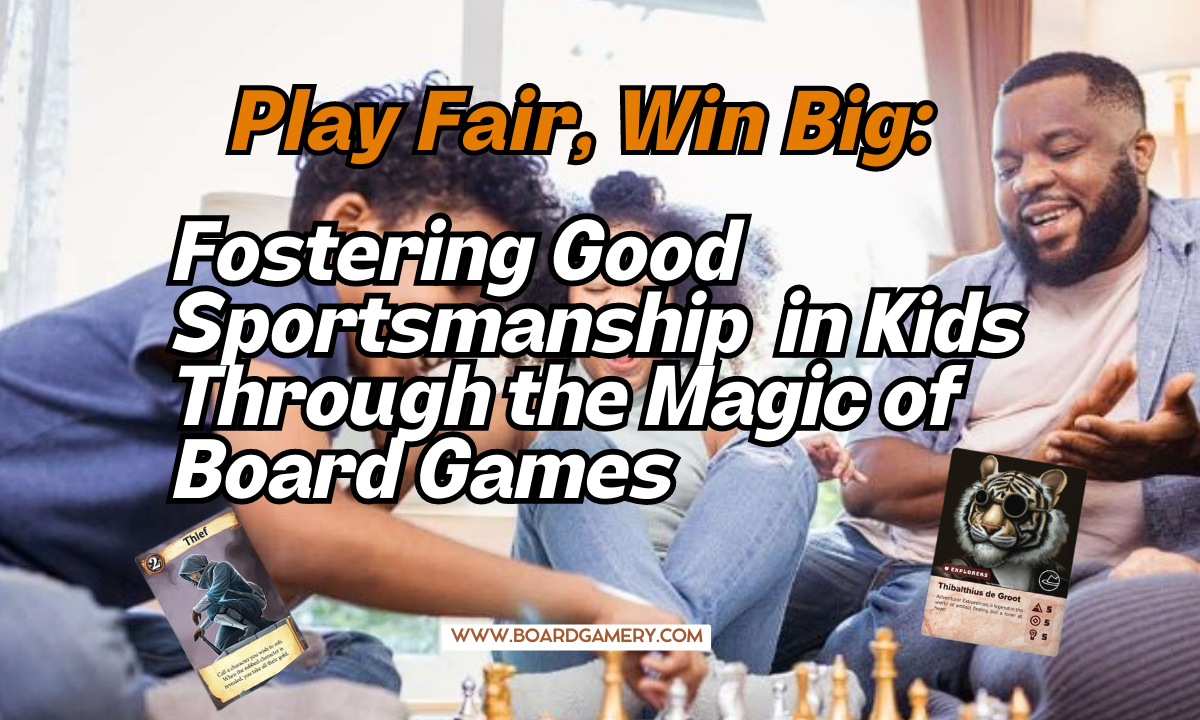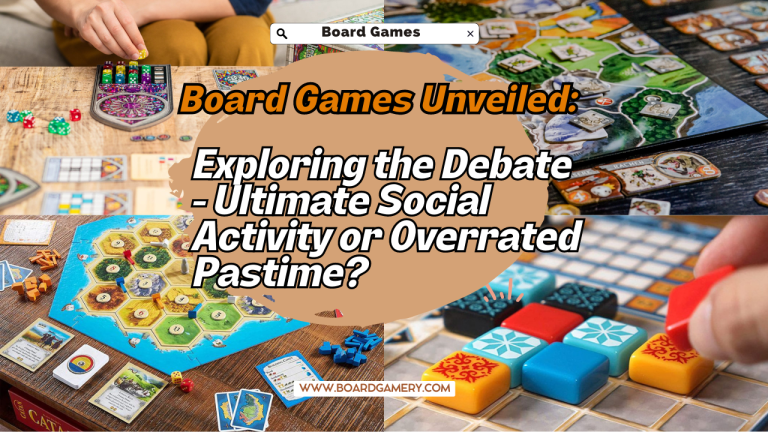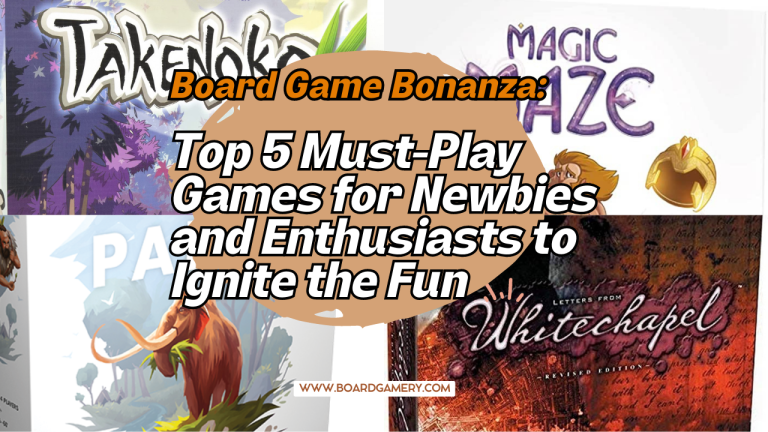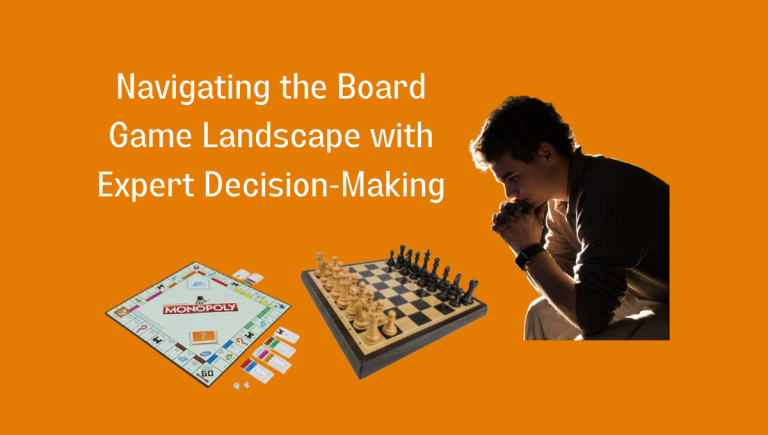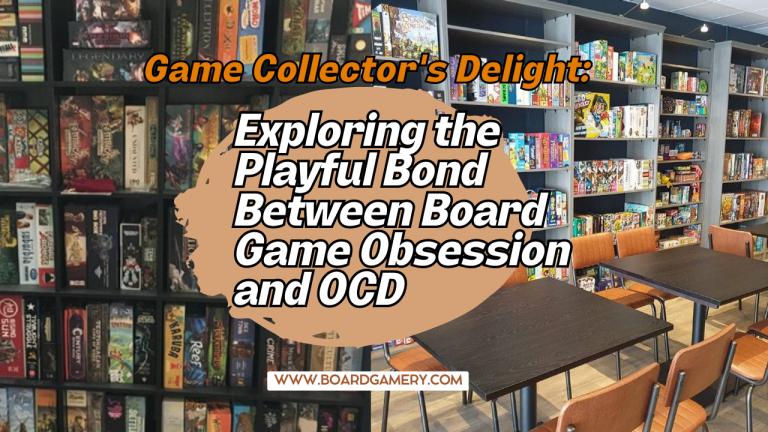Fostering Good Sportsmanship in Kids with Board Games
How to Raise a Gracious Winner and Good Sport: Through the Power of Board Games
It’s a common parenting struggle: fostering healthy competition and good sportsmanship in our kids. But perhaps some friendly guidance and a little tabletop gaming magic can help your 10-year-old learn to win with grace, lose with dignity, and find joy in the game itself. Grab your meeple and get ready to embark on an epic quest of parenthood and board game shenanigans.
A Journey Begins: The Light-hearted Introduction
Welcome to the parenting battlefield that knows no age boundaries – teaching your kiddo to be a good sport. We’ve all been there – the tears, the tantrums, and the sudden urge to ‘accidentally’ lose a game piece. But fear not, for I have traversed this territory before and emerged victorious – or at least significantly less exhausted. Our trusty guide along this path? Board games!

So put down the iPad, step away from the TV, and let’s dive into the world of tabletop gaming – where the lessons are as rich as the laughter and the bonds forged over friendly competition may well transform your child’s sportsmanship (and hey, maybe even improve that pesky math grade).
Co-op Games: Succeeding and Failing as a Team
First up on our list are cooperative (or co-op) games, where players work together against the game itself. Games like Pandemic, Forbidden Island, and Castle Panic offer a strong sense of camaraderie as everyone strives for a common goal, sharing both victory and defeat.
More About Pandemic:

| Rating | 7.6 |
| For Players | 2-4 |
| Time Duration | 45 Min |
| For Age | 8+ |
More About Forbidden Island:
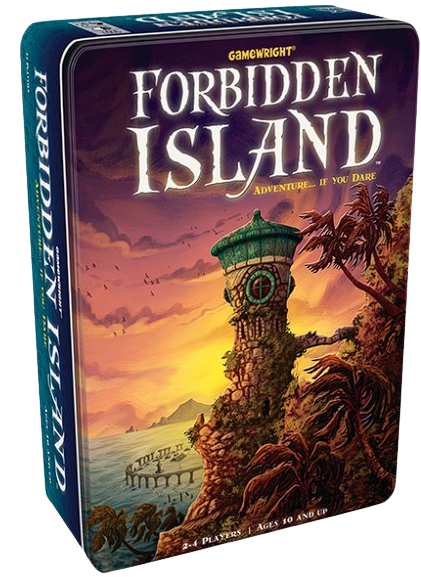
| Rating | 6.8 |
| For Players | 2-4 |
| Time Duration | 30 Min |
| For Age | 10+ |
More About Castle Panic:
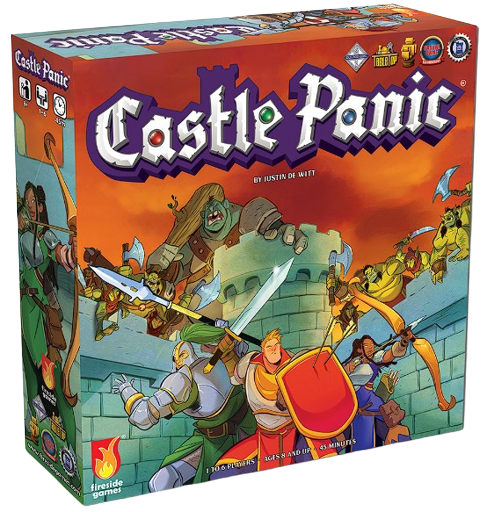
| Rating | 6.6 |
| For Players | 1-6 |
| Time Duration | 60 Min |
| For Age | 10+ |
When the entire team starts experiencing what it’s like to lose together, it becomes far less intimidating and traumatic for a single player. It offers the perfect opportunity to model healthy behaviors and attitudes for your child, turning every win or loss into a fun and teachable moment.
Light, Quick Games: Teaching Resilience and Adaptability
For kids who struggle with losing, games with rapid gameplay or that require multiple rounds can help build resilience and adaptability. Games like UNO, Sushi Go!, and Zombie Dice offer quick rounds and simple rules, allowing for frequent wins and losses in a single session.
More About UNO:
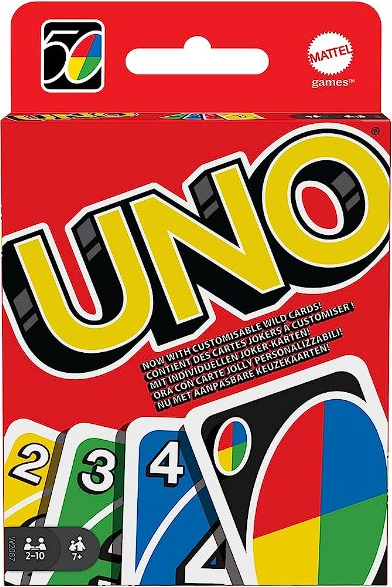
| Rating | 5.4 |
| For Players | 2-10 |
| Time Duration | 30 Min |
| For Age | 6+ |
More About Sushi Go!:
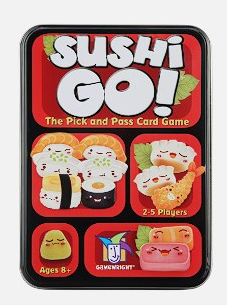
| Rating | 7.0 |
| For Players | 2-5 |
| Time Duration | 15 Min |
| For Age | 8+ |
More About Zombie Dice:
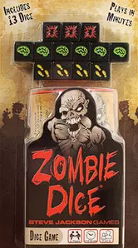
| Rating | 6.2 |
| For Players | 2-99 |
| Time Duration | 10-20 Min |
| For Age | 10+ |
These fast-paced games provide the opportunity to talk through the experience and offer positive reinforcement or guidance after each round, allowing your child to process their emotions and understand that winning and losing are both temporary and expected aspects of competition.
Tile-based and Euro Strategy Games: Practicing Intensity without Cut-throat Competition
Perhaps your child is ready for games with a bit more complexity, but hates the feelings of competition or destructive take-that mechanics. Introduce them to tile-based games like Carcassonne or Euro strategy games like Splendor, which focus on resource management and individual achievement.
More About Carcassonne:
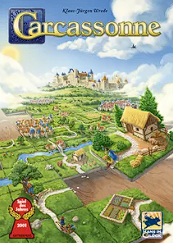
| Rating | 7.4 |
| For Players | 2-5 |
| Time Duration | 30-45 Min |
| For Age | 7+ |
More About Splendor:

| Rating | 7.4 |
| For Players | 2-4 |
| Time Duration | 30 Min |
| For Age | 10+ |
Although still competitive, these games often present a more indirect approach where players strive to build their own assets and achieve personal objectives rather than aggressively targeting others. This style of play offers an excellent balance of challenge and friendly rivalry without feeling too intense or adversarial.
Embracing the “Fun” in Winning and Losing
Regardless of which game you choose, the most important aspect is to emphasize the importance of fun, enjoyment, and participation – over simply winning or losing. Model positive behaviors and attitudes, praising effort and progress, and encourage your child to see the value in the challenge and experience of playing the game itself.
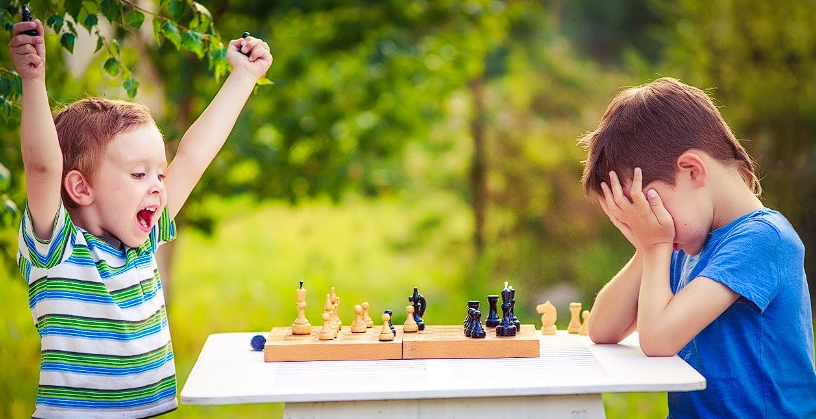
A Winning Strategy
At the end of the day, whether your child falls in love with cooperative play, short and quick games, or something more complex, the key is to maintain an open, honest, and supportive dialogue throughout the gaming experience. With time, patience, and a healthy dose of board game fun, your child will learn that it’s not just about whether you win or lose; it’s about the memorable moments and the lessons learned along the way. Now go on and play, intrepid adventurers – and may the dice be ever in your favor!
